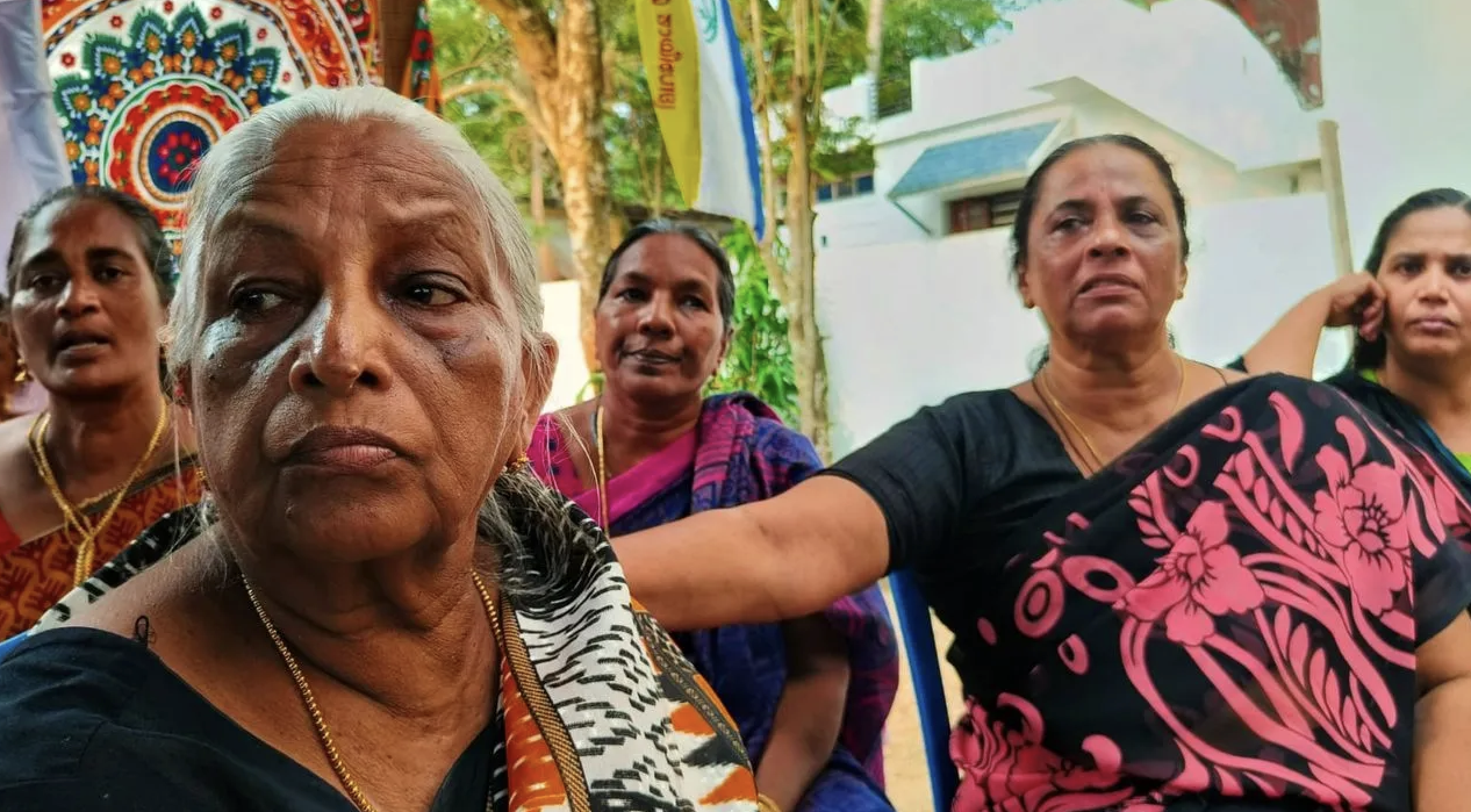
Five kilometres away from the vibrance of Kochi city, the sights change as the coastal village charm gently takes over.
Fishing harbours dot the landscape, boats bob on the waves, and fishermen go about their daily rhythm. The houses, painted in shades of white, green, and aqua blue, mirror the hues of the sea, blending seamlessly with the coastal scenery.
The bus towards Kozhuppilly Beach Road is not crowded. Most passengers seemed to know each other. Their conversations stir a sense of unease, focused on the growing tension surrounding the Waqf land dispute.
Beena Varghese, from Kozhuppilly next to Munambam, shared her concerns, despite her only vague understanding of the matter. “The Waqf Board is offering money to mainstream channels, which is why no media is covering the issue in Munambam,” she said.
“I’m a Latin Catholic, and every Sunday our priests ask us to pray for Munambam, distributing notices about the Waqf issue in our churches,” she said.
The bus eats up the distance and reaches Munambam, 28 kilometre from Kochi. A private vehicle or autorickshaw goes to Munambam Kadappuram, a small coastal village, from the bus stop. Narendra Modi and Amit Shah beam at the visitors from the many posters dotting the predominantly Christian area.
Munambam waits for Modi or Amit Shah
Religious institutions like temples and churches serving as sites for protests are a rare occurrence in Kerala.
In a remarkable display of interfaith solidarity, members of the Christian and Hindu communities have come together at the grounds of Velankanni Church in Kadappuram, Munambam, to stage a hunger strike in protest against a land dispute with the Waqf Board.
This story was originally published in thesouthfirst.com. Read the full story here.

